Uncategorized
-
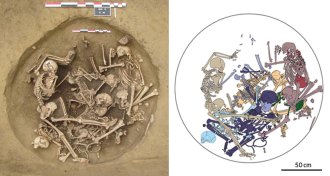 Archaeology
Archaeology6,000-year-old skeletons in French pit came from victims of violence
Human bones in a French pit recall lethal conflicts and limb lopping 6,000 years ago.
By Bruce Bower -
 Animals
AnimalsPlayful pups conceived via in vitro fertilization for the first time
Scientists have solved the mystery of how to perform in vitro fertilization in dogs, which could help rid canines of heritable diseases.
By Meghan Rosen -
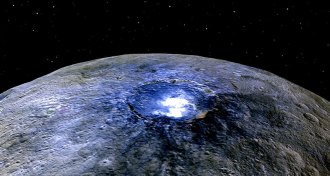 Planetary Science
Planetary ScienceSalty source of Ceres’ mysterious bright spots found
Bright spots on Ceres contain salts from a possible subsurface layer of ice while ammonia-rich minerals hint at building blocks incorporated from the far outer solar system.
-
 Genetics
GeneticsLiberia’s Ebola outbreak largely traced to one source
Ebola’s spread and evolution in Liberia echoes patterns seen in Sierra Leone.
-
 Neuroscience
NeuroscienceEyes hard at work can make ears go temporarily deaf
When challenged with a tough visual task, people are less likely to perceive a tone, suggesting that perceptual overload can jump between senses.
-
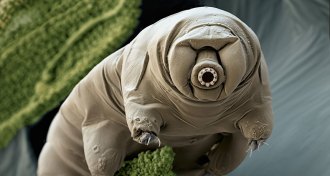 Animals
AnimalsWater bears’ genetic borrowing questioned
A new analysis of tardigrade DNA suggests that water bears don’t swap many genes with other organisms after all.
-
 Planetary Science
Planetary ScienceJapanese spacecraft reaches Venus — five years late
The Japanese Space Agency’s Akatsuki spacecraft succeeded at a second attempt at orbiting Venus, five years after an engine failure prevented its intended mission.
-
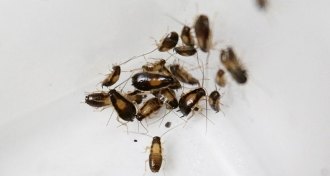 Animals
AnimalsGut bacteria’s compounds bring cockroaches together
German cockroaches may rely on gut bacteria to help attract fellow roaches.
-
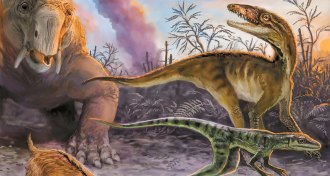 Paleontology
PaleontologyNew dating of dino ancestor challenges Triassic timeline
New dates for geologic layers of well-known fossil formation show that dinosaurs and their ancient relatives were separated by less time than researchers thought.
-
 Genetics
GeneticsDNA editing shows success in mosquito sterilization
A new gene drive that sterilizes females could reduce numbers of malaria mosquitoes
-
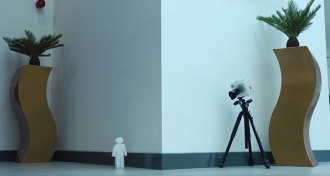 Physics
PhysicsThere’s no hiding from new camera
A new camera tracks objects hidden around a corner by detecting light echoes, similar to the way bats use sound to find prey.
By Andrew Grant -
 Health & Medicine
Health & MedicineHigh-potency pot smokers show brain-fiber damage
People who smoke potent pot had signs of damage in a brain communication link.